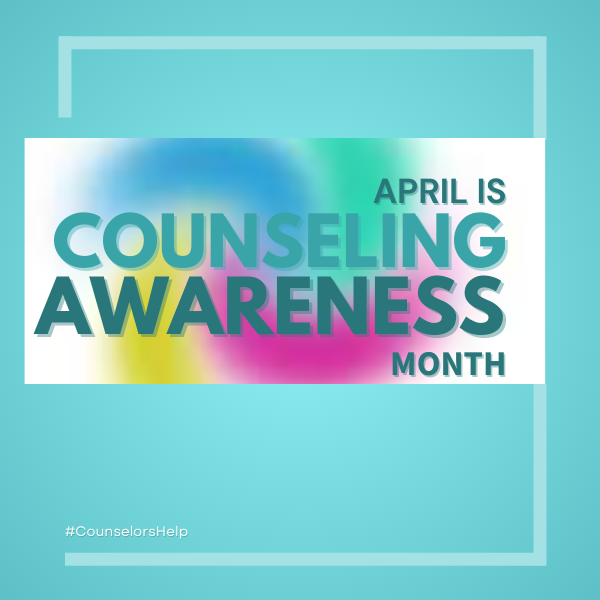Aviation Mental Health in 2025
Understanding the Changes and How PCS Therapy Supports You
A New Era for Aviation Mental Health
Mental health in aviation has long been a complex topic, with many pilots and air traffic controllers hesitating to seek help due to concerns about career consequences and medical certification. However, 2025 marks a turning point with the introduction of The Mental Health in Aviation Act of 2024, a bipartisan effort to reform mental health policies in the industry.
At PCS Therapy, we recognize the unique challenges that aviation professionals face. We specialize in providing confidential, evidence-based mental health support for pilots, flight crews, and air traffic controllers. This article explores how aviation mental health policies are evolving, what these changes mean for aviation professionals, and how PCS Therapy can support those navigating these new regulations.
The Mental Health in Aviation Act of 2024: Key Provisions
The Mental Health in Aviation Act of 2024, introduced by Congressional Representatives Sean Casten and Lori Chavez-DeRemer, seeks to dismantle the barriers that prevent aviation professionals from seeking mental health care. The act includes five key initiatives:
FAA Regulation Revisions & Confidentiality Protections
Pilots and air traffic controllers have long avoided seeking mental health treatment due to fears of medical disqualification and career loss. This act requires the FAA to update its regulations, ensuring that:
Mental health disclosures do not automatically lead to grounding.
Pilots and ATCs can seek treatment confidentially without punitive repercussions.
Aviation medical examiners have clear guidelines to assess mental health conditions fairly and without bias.
At PCS Therapy, we provide a confidential space where aviation professionals can discuss their concerns without fear. Our approach ensures that you receive the mental health care you need while understanding the latest regulatory changes.
Annual Policy Reviews & Medication Guidelines
A common challenge for pilots has been outdated FAA policies on mental health medication. Many antidepressants and anti-anxiety medications have historically led to automatic medical certificate deferrals. The new legislation mandates annual reviews of medication policies, allowing pilots on safe, stable medication regimens to retain their medical certificates more easily.
At PCS Therapy, we help provide aviation professionals with coping skills, stress management techniques, relationship counseling, as well as with the resources to navigate medication concerns.
Increased Mental-Health Training for Aviation Medical Examiners
One of the most significant reforms is the $13.74 million annual funding (from 2025-2028) to recruit and train more AMEs in mental health evaluations. The goal is to:
- Ensure AMEs understand the nuances of diagnosing and treating mental health conditions in aviation professionals.
- Reduce unnecessary medical deferrals based on outdated perceptions of mental health.
- Encourage a collaborative approach between pilots, mental health professionals, and aviation medical examiners.
Public Awareness & Destigmatization Efforts
To make mental health support more accessible, the bill allocates $1.5 million annually toward public campaigns aimed at:
- Educating pilots, ATCs, and industry stakeholders about mental health as a priority, not a liability.
- Highlighting resources and confidential treatment options.
- Showcasing success stories of aviation professionals who sought treatment and continued successful careers.
PCS Therapy is committed to offering support to aviation professionals who may be struggling with stress, anxiety, trauma, and other challenges common in the aviation field.
Consultation & Collaboration With Industry Stakeholders
To ensure that mental health policies align with real-world aviation concerns, the FAA must consult with:
- Pilots and air traffic controllers
- Aviation medical examiners
- Aviation industry organizations
- Mental health experts specializing in aviation
PCS Therapy stays updated on these changes to provide clients with the best possible guidance, ensuring that they remain compliant with regulations while receiving the mental health care they deserve.
FAA Mental Health Certification Updates in 2025
As part of these reforms, the FAA has updated its medical certification guidance for mental health conditions. Some of the most notable changes include:
- More discretion for AMEs: Aviation medical examiners now have greater autonomy in determining pilot fitness, especially for conditions like anxiety and depression.
- Faster review process: Pilots can now receive medical certificates without FAA intervention if they:
- Have been off mental health medications for two years.
- Have only two or fewer prior diagnoses.
- Pass a mental health screening questionnaire.
- New assessment tool: A standardized decision tool helps AMEs evaluate mental fitness more consistently, reducing bias and arbitrary deferrals.
PCS Therapy works closely with aviation professionals to ensure they understand these changes and can navigate the certification process with confidence.
Addressing Substance Abuse in Aviation
How Common is Substance Abuse Among Pilots and ATCs?
Aviation is a high-stress profession, and research shows that some pilots and ATCs turn to alcohol or prescription drugs to cope. The Mental Health in Aviation Act acknowledges this issue by ensuring that those who seek help for substance use disorders are not automatically grounded indefinitely.
New FAA policies now include:
- Confidential substance use treatment options.
- Structured return-to-work programs for those who complete treatment successfully.
- More leniency for past substance use cases, allowing pilots to prove recovery without permanent disqualification.
Pilots receive excellent substance abuse treatment through HIMS, and PCS Therapy offers pre and post treatment support that compliments the work being done through that program.
Why These Changes Matter
Aviation professionals operate in high-stakes environments where mental health is just as critical as physical health. The changes outlined in The Mental Health in Aviation Act of 2024 and FAA medical certification updates in 2025 are groundbreaking because they:
- Encourage pilots to seek help without fear.
- Reduce unnecessary grounding due to outdated mental health policies.
- Ensure fair treatment of pilots and ATCs dealing with mental health conditions.
- Provide more comprehensive training for AMEs to properly evaluate mental fitness.
- Address the critical issue of substance use in aviation.
PCS Therapy is here to guide aviation professionals through these changes, offering expert support, therapy, and education on how to maintain their mental health while continuing to excel in their careers.
Need support?
Contact PCS Therapy today to schedule a confidential consultation.
Aviation FAQs
Can pilots now take antidepressants and still fly?
Yes, under new FAA guidelines, certain antidepressants and anti-anxiety medications are now permitted if they are prescribed under a controlled, monitored plan. Pilots will need to work with their AME to ensure they meet FAA medical certification criteria. Learn more here.
Will reporting mental health treatment still lead to grounding?
Not necessarily. The Mental Health in Aviation Act ensures that seeking mental health treatment does not automatically result in losing a medical certificate. Pilots and ATCs can now seek confidential support without immediate punitive action. For more details, visit the FAA’s mental fitness page.
What should I do if I need mental health support?
If you are struggling with stress, anxiety, or other mental health concerns, consider:
- Speaking with an aviation-aware mental health professional
- Consulting your AME about your options
- Utilizing confidential resources offered by aviation organizations. Find more FAQs here.
A Healthier Future for Aviation
The aviation industry is finally addressing mental health in a meaningful way. With the implementation of The Mental Health in Aviation Act of 2024 and FAA’s updated certification policies, pilots and air traffic controllers can now access mental health care without jeopardizing their careers.
PCS Therapy is proud to be a trusted resource for aviation professionals seeking confidential, compassionate mental health support. Whether you need assistance managing stress, navigating certification concerns, or addressing substance use, we are here to help.

EMDR Therapy: A Powerful Path to Trauma Healing
If you’ve experienced something painful that continues to affect your daily life—whether it’s anxiety, intrusive memories, or a persistent sense of unease—you’re not alone. Many people carry the weight of unresolved trauma without realizing how deeply it’s impacting...

Understanding Anxiety: Causes, Treatment, and How PCS Therapy Can Help
Feeling anxious from time to time is a normal part of life. But when anxiety becomes persistent, overwhelming, or begins interfering with your daily activities, relationships, or work, it’s time to take a closer look. Anxiety disorders are among the most common mental...

Counseling Awareness Month
Why Counseling Matters More Than Ever Every April, we celebrate Counseling Awareness Month (CAM)—a time to recognize the profound impact of professional counselors and the essential role counseling plays in supporting mental health and well-being across our...

Managing Stress: Effective Strategies for a Healthier Mind and Body
Stress is an inevitable part of life. Whether it stems from work, relationships, or unexpected challenges, everyone experiences stress at some point. While stress can sometimes be a motivator, chronic stress can negatively impact your mental, emotional, and physical...
Stay Connected & Prioritize Your Mental Well-Being
At PCS Therapy, we are committed to providing expert mental health support and trusted resources to help you navigate stress, trauma, and personal growth.
Need Personalized Support? Contact us today to schedule a confidential consultation.


Hi, this is a comment.
To get started with moderating, editing, and deleting comments, please visit the Comments screen in the dashboard.
Commenter avatars come from Gravatar.